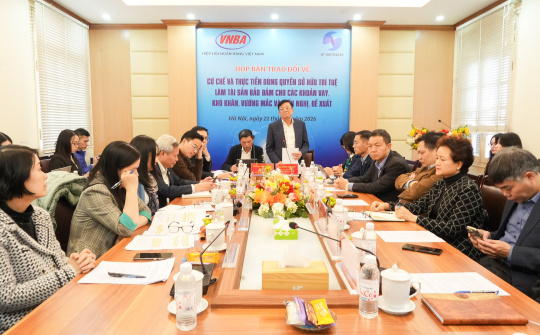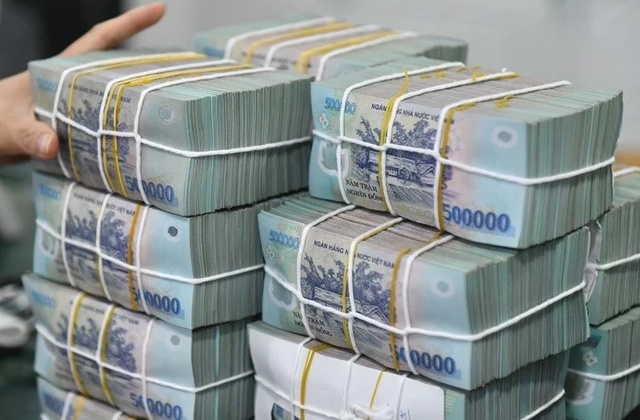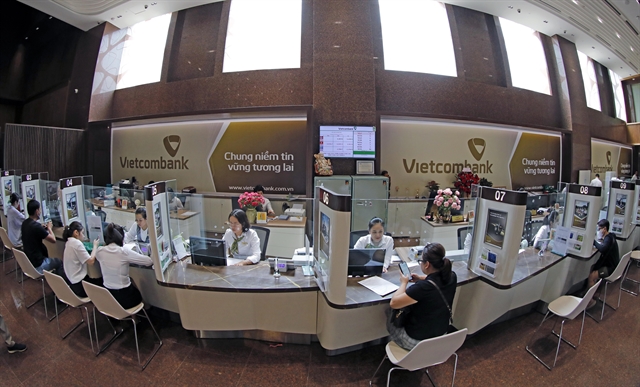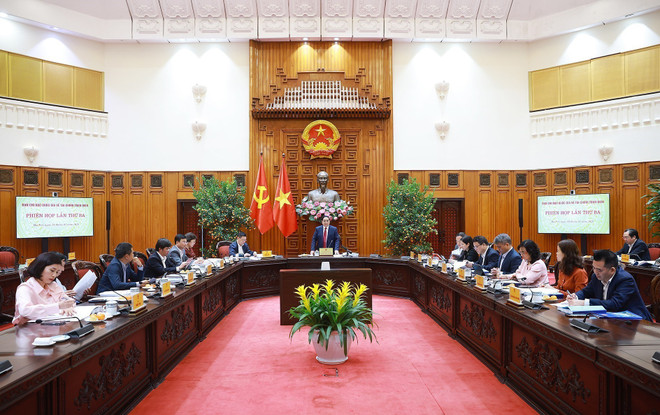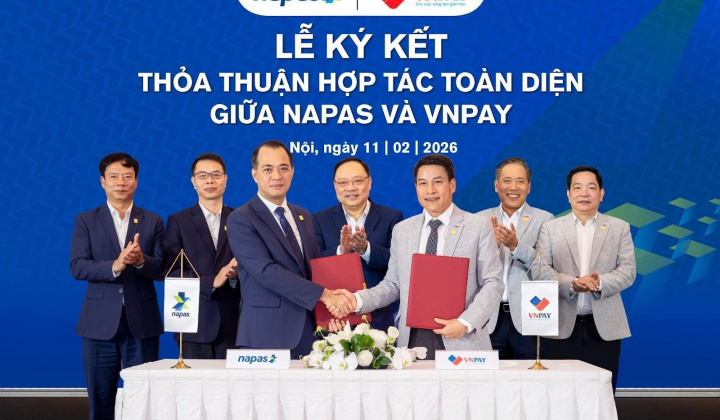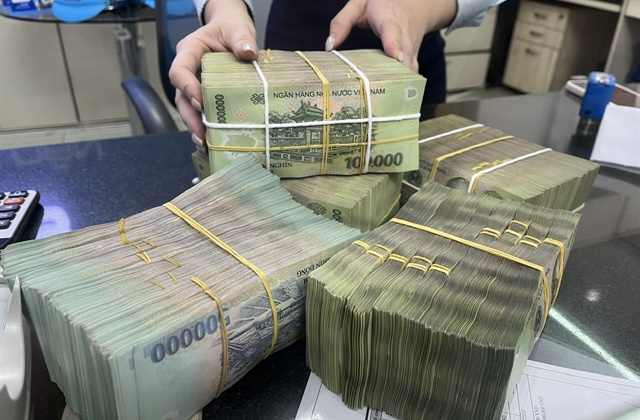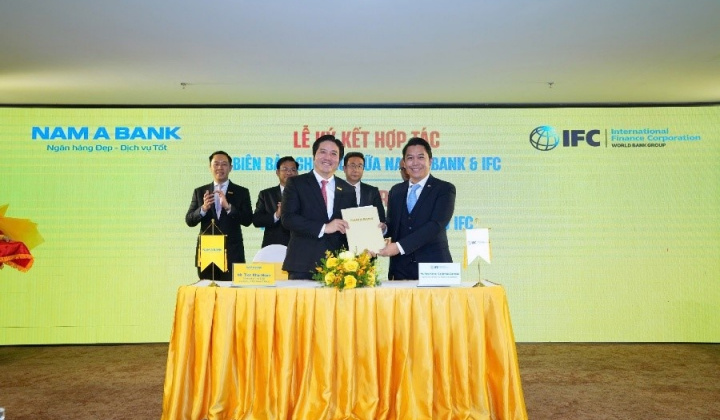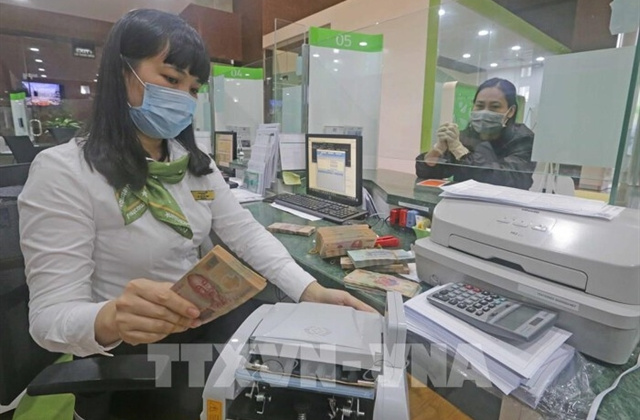Attending the Conference, on the side of the State Bank of Vietnam (SBV), there were Mr. Le Van Tuyen - Deputy Director, Payment Department; Mr. Nguyen Kim Cuong - Director of the SBV Dak Lak branch; Mr. Le Van Luong and Mr. Dinh Van Thoi - Deputy Directors of the SBV Dak Lak province, Mr. Tang Hai Chau - Former Director of the SBV Dak Lak province, former representative of the Vietnam Banks Association in the Central Highlands
On the side of the Ministry of Public Security, there were: Mr. Cao Viet Hung - Deputy Head of Department 4, Department of Cyber Security and Prevention of High-Tech Crime (A05).
On the side of the Vietnam Banks Association, there were: Mr. Nguyen Quoc Hung - Vice Chairman and General Secretary; Mr. Nguyen Minh Tam - Vice Chairman of the Card Association; Mr. Nguyen Ngoc Quy - Head of the Risk Management Subcommittee, Card Association.

Dr. Nguyen Quoc Hung - VNBA' s Vice Chairman cum Secretary General
On the side of international card organizations, there were: Mr. Fred Yap - Director of Data and Services Mastercard; Ms. Nguyen Thi Ba Linh - Director of Risk Management Visa Vietnam and Laos; Ms. Ho Thao - Director of Visa Solutions Vietnam and Laos; Ms. Do Thi Minh Hue - Director of External Relations JCB Vietnam.
Digital transformation develops rapidly, accompanied by increased risks of counterfeiting and fraud
Speaking at the Conference, Vice President and General Secretary of the Vietnam Banks Association Nguyen Quoc Hung commented that, as the lifeblood of the economy, the main capital channel serving production and business, the banking industry is also a pioneer in the field of digital transformation. In recent times, the banking industry has devoted a large amount of resources to digital transformation and achieved many very positive results. To date, more than 87% of adults in Vietnam have a payment account at a bank; the growth in the number of payment transactions via the internet and mobile is about 90%/year.
Digital banking has made great strides, especially after the State Bank issued Decision No. 2345/QD-NHNN on implementing security solutions in online payments and bank card payments to further enhance solutions to ensure safety, security, and better protect service users against online fraud. Currently, 25 credit institutions have sent data to the Department of Administrative Police for Social Order (C06) for cleaning with nearly 2.5 million customer records sent and received feedback.
"The digital transformation of credit institutions in Vietnam is at the forefront in Southeast Asia. Looking at the markets such as Korea, Japan, Hong Kong (China) or Taiwan (China), we can see that what they are doing, Vietnam can also do", Mr. Nguyen Quoc Hung shared more.
However, in addition to the strong development of digital transformation, the banking industry is also facing great challenges and difficulties.
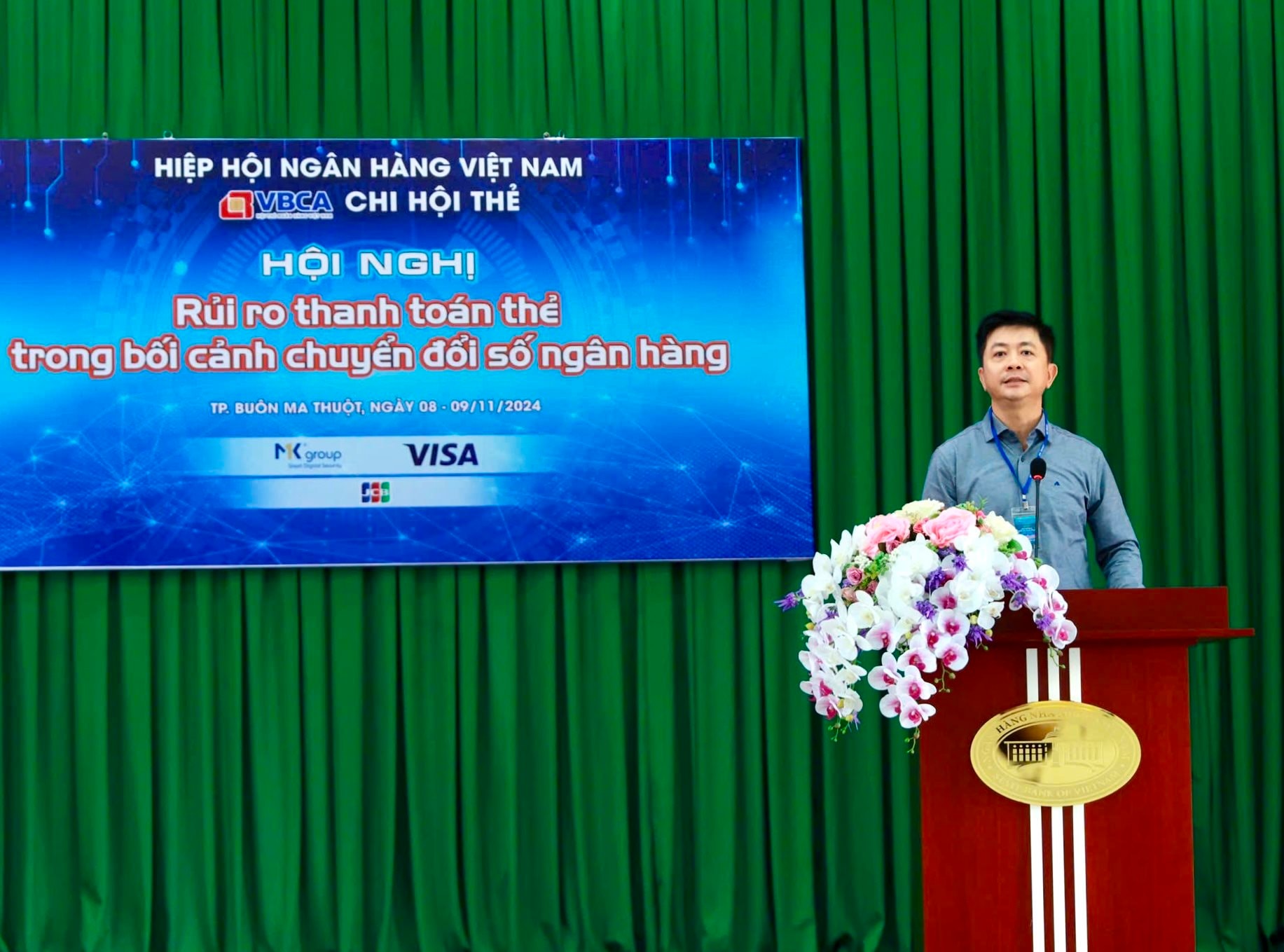
Mr. Nguyen Minh Tam, Vice President of the Card Association
Speaking at the Conference, Mr. Nguyen Minh Tam, Vice President of the Card Association, stated that financial technology crimes are increasing with increasingly sophisticated, complex and unpredictable forms of forgery, fraud and scams.
“Criminals attack and steal data/information from the banking system/devices of the Bank, from points of sale linked to the Bank or directly from customers using the service…, even understanding the psychology of each person to manipulate and defraud”, said Mr. Nguyen Minh Tam.
Sharing the same view, a representative of the international card organization Visa shared: “AI has continued to promote the transformation of interactions and opened up new opportunities. As a result, a series of new applications have emerged such as: virtual assistant; image recognition; natural language processing; AI code generation; speech recognition technology… However, these have also caused unwanted consequences”.
Improving card payment risk management capacity
It can be seen that the development of cyberspace goes hand in hand with the risk of increasingly complex and sophisticated fraud crimes.
With extensive experience in handling risks related to international payment fraud crimes over the years, Visa's representative pointed out 4 main types of risks for current card payment activities, including: Phishing Schemes, a form of cyber attack in which attackers impersonate a reputable entity to trick users into providing personal information to them; Ransomware - a type of malware that specializes in encrypting data or locking access to users' devices; Voice Cloning or voice cloning is the process of creating a digital copy of a human voice based on artificial intelligence AI, machine learning and natural language processing; and Biometric Bypass - biometric fraud.
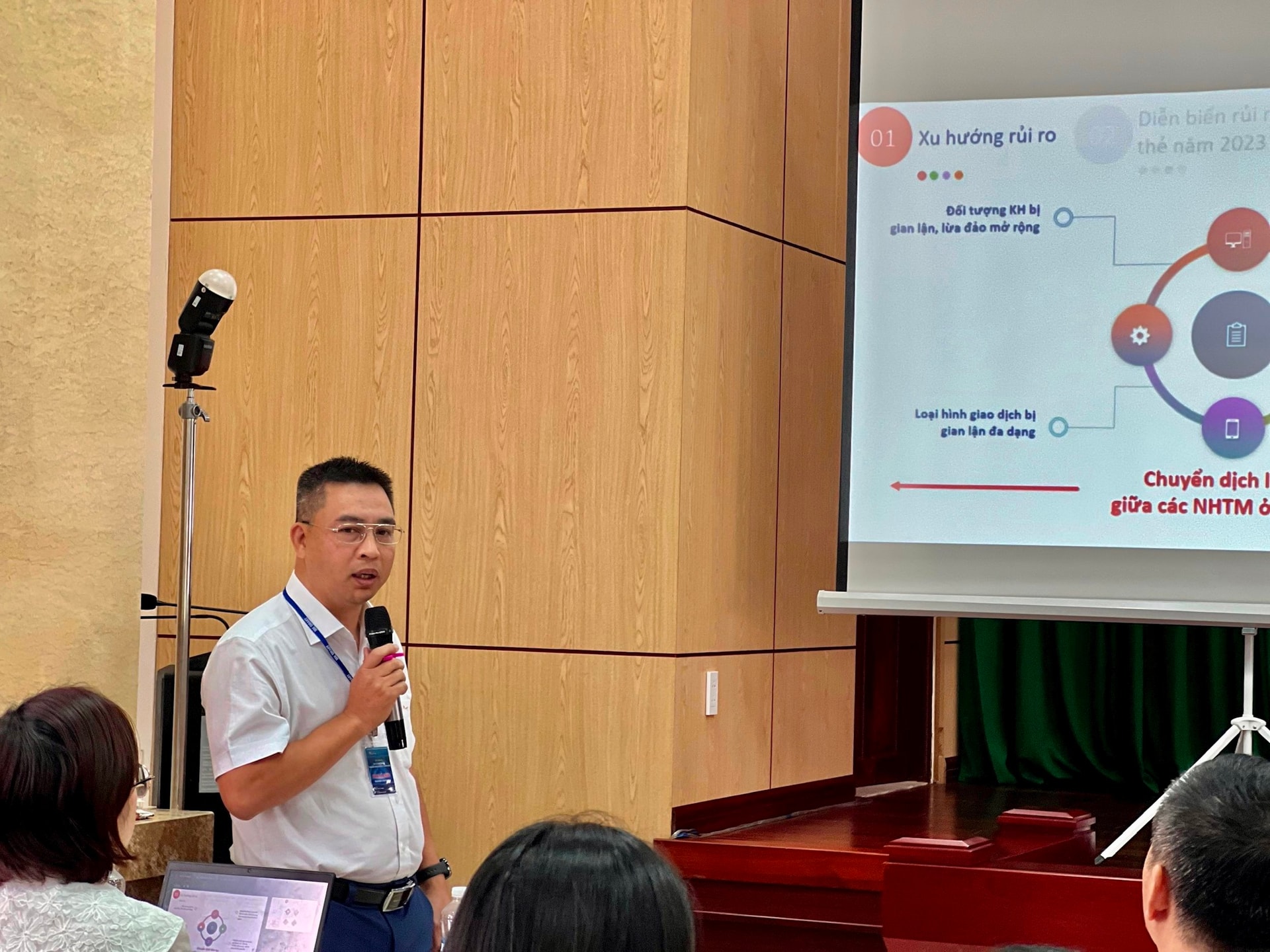
Mr. Nguyen Ngoc Quy, Head of the Risk Management Subcommittee, Card Association
Analyzing the risks in card payments recorded in practice at member banks of the Card Association in the past 2 years, Mr. Nguyen Ngoc Quy, Head of the Risk Management Subcommittee, Card Association, said that 2 ATM skimming (stealing card information) in 2024 affected 13 member banks, with a total recorded loss of about 2 billion VND. Regarding domestic card online payment fraud, an average of 12,000 transactions were recorded to check and complain with fraud codes/1 month through NAPAS (the number of customers who did not check and complain was very large). Regarding the risks of international card issuance, the Risk Management Subcommittee has identified a number of large-scale data leaks; shifting the check and complaint codes from fraud to codes of not receiving goods and services. As for the risks of international card payment operations, transactions with signs of money laundering are still common, and fraud occurs at large, reputable online card acceptance units...

Mr. Cao Viet Hung, Deputy Head of Department 4, A05, Ministry of Public Security
Explaining the reasons for the increase in card payment risks, Mr. Cao Viet Hung, Deputy Head of Department 4, A05, Ministry of Public Security, pointed out 4 main reasons:
First, the awareness of a large number of customers using card services or online payments is still limited.
Second, the situation of buying and selling personal data, renting and lending bank accounts is widespread and difficult to control. Although the subjects constantly change their methods and tricks, they all have a single goal in common: to appropriate people's assets (money).
Third, there is a lack of legal corridor to manage and handle the trading and buying and selling of "virtual money", "virtual assets", "digital money".
Fourth, international cooperation and information exchange between the Vietnamese police and foreign law enforcement agencies still face many difficulties, limitations, and lack of synchronization and flexibility, leading to the failure to thoroughly handle high-tech criminal organizations with foreign elements. Many foreign cardholders who have lost money in Vietnam have been notified by international card organizations, but it is very difficult to investigate, verify, and recover assets....
Creating synergy, promoting safe and sustainable digital banking transformation
To ensure payment security and safety, the State Bank has coordinated with relevant agencies to implement many measures, including issuing many policy mechanisms.
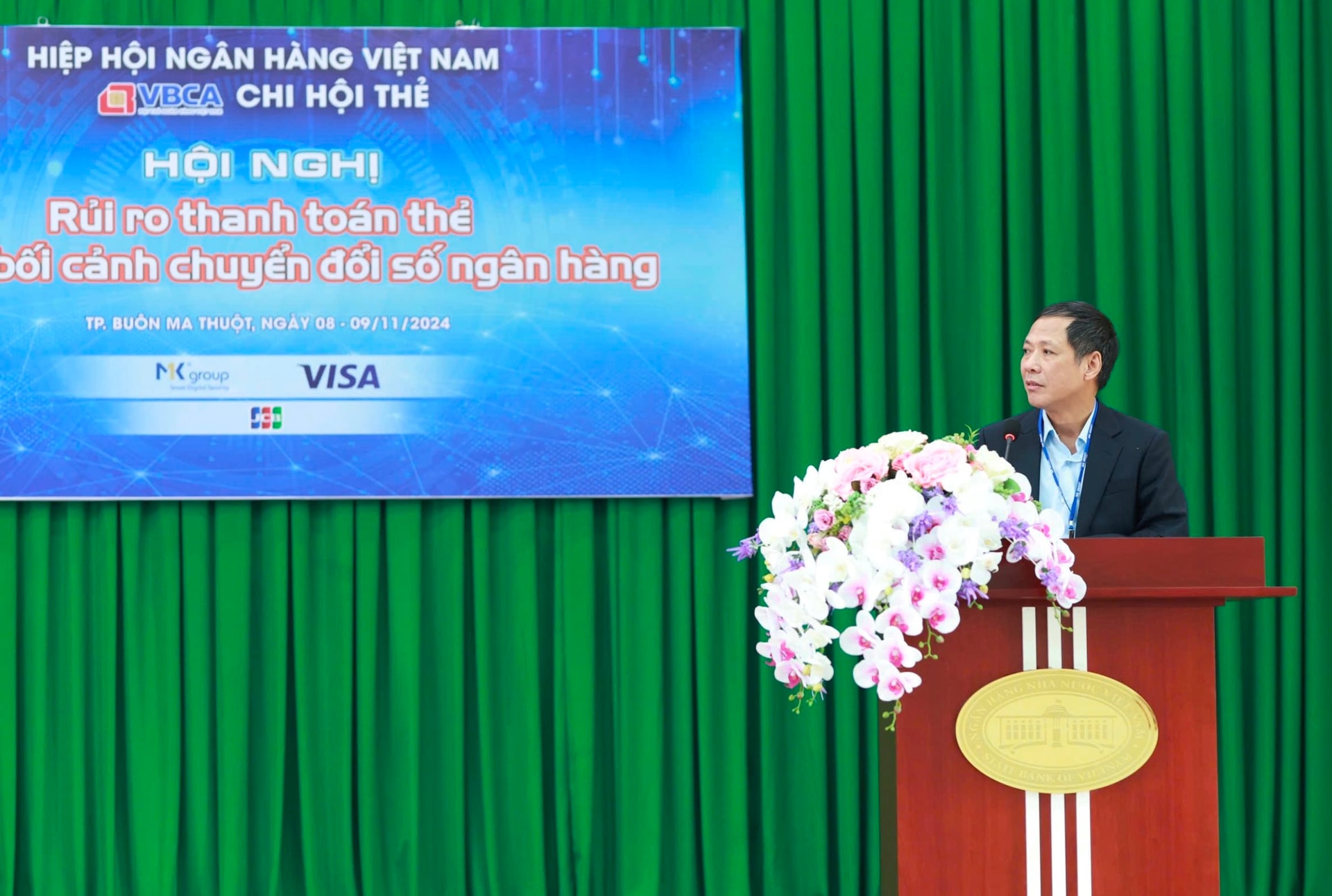
Mr. Le Van Tuyen - Deputy Director, Payment Department, SBV
Sharing at the Conference, Mr. Le Van Tuyen - Deputy Director, Payment Department said that in the past time, the State Bank has issued many circulars, including adding many regulations related to ensuring safety and security in banking activities such as: Circular No. 15/2024/TT-NHNN dated June 28, 2024 regulating the provision of non-cash payment services; Circular No. 17/2024/TT-NHNN regulating the opening and use of payment accounts at payment service providers; Circular 18/2024/TT-NHNN regulating bank card activities; Circular 40/2024/TT-NHNN regulating the provision of payment intermediary services; Circular 41/2024/TT-NHNN dated July 17, 2024 regulating the supervision and implementation of supervision of important payment systems and the provision of payment intermediary services.
Regarding the orientation of solutions in the coming time, Mr. Le Van Tuyen emphasized that the banking sector continues to effectively implement the tasks and solutions in the Project on developing e-commerce and the Project on developing data applications on residents. Specifically:
First, continue to perfect the policy mechanism and legal framework.
Second, focus on implementing Project 06, focusing on connecting the population database, the identification system and electronic authentication to serve banking operations according to the coordination plan between the Ministry of Public Security and the State Bank.
Third, continue to upgrade and develop the technology infrastructure serving e-commerce: upgrade and expand the connection of payment systems and payment ecosystems.
Fourth, apply technology to develop convenient digital payment products and services to serve people while ensuring security and safety of banking operations.
Fifth, continue to strengthen training and propaganda, financial education for people; Allocate resources to serve e-commerce.
On the side of Vietnam Banks Association, Vice Chairman and General Secretary Nguyen Quoc Hung added that Vietnam Banks Association and the Card Association are preparing to issue a set of rules to clarify the coordination process for handling risks in payment and fraud in the field of card payment. Mr. Nguyen Quoc Hung also emphasized the role of communication work to warn about forms of fraud in card payment, raise customer awareness; at the same time, affirming that close coordination between functional departments and credit institutions will create a synergistic strength in risk management, promptly removing difficulties and obstacles in the Bank's card operations.




